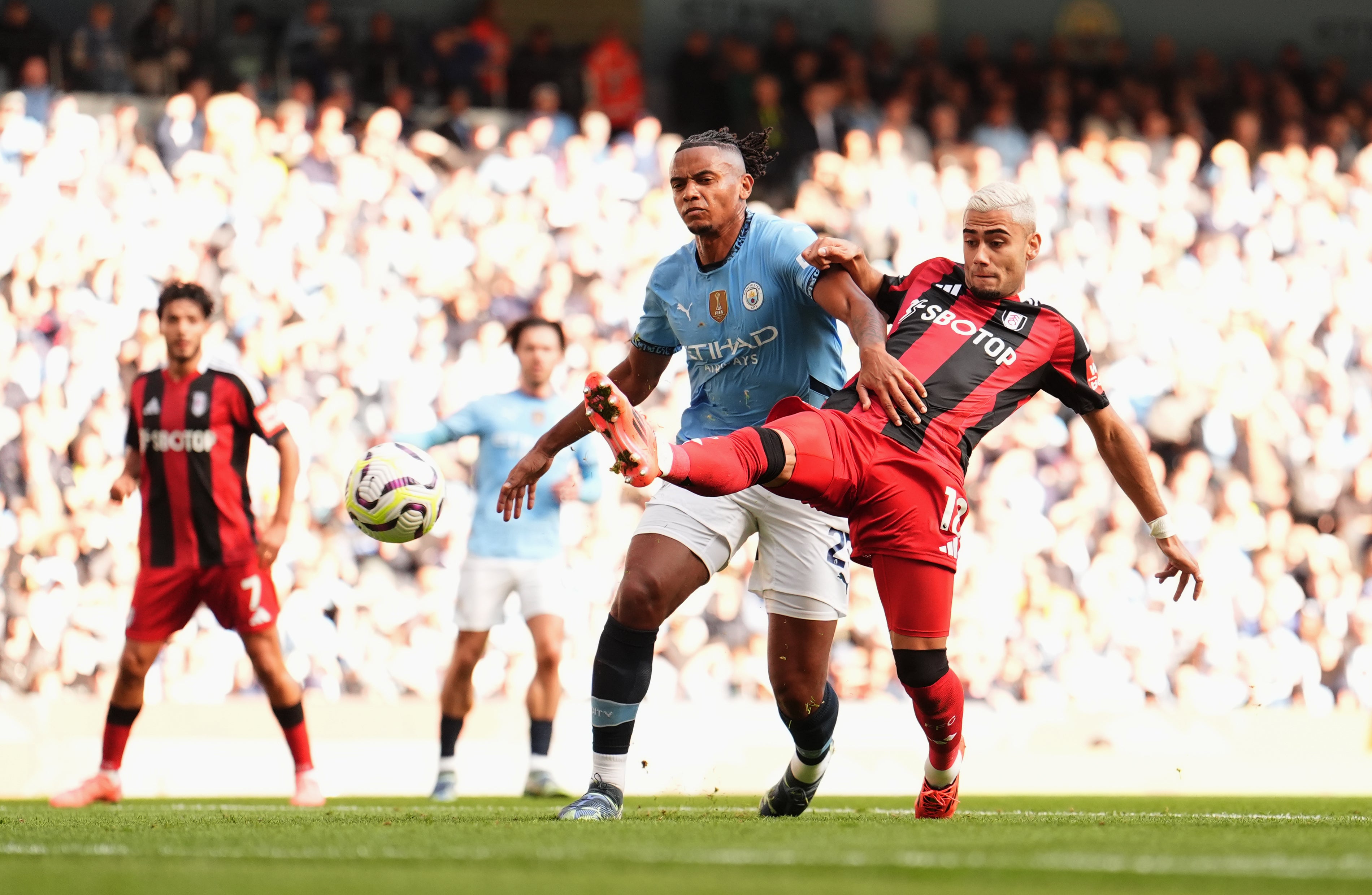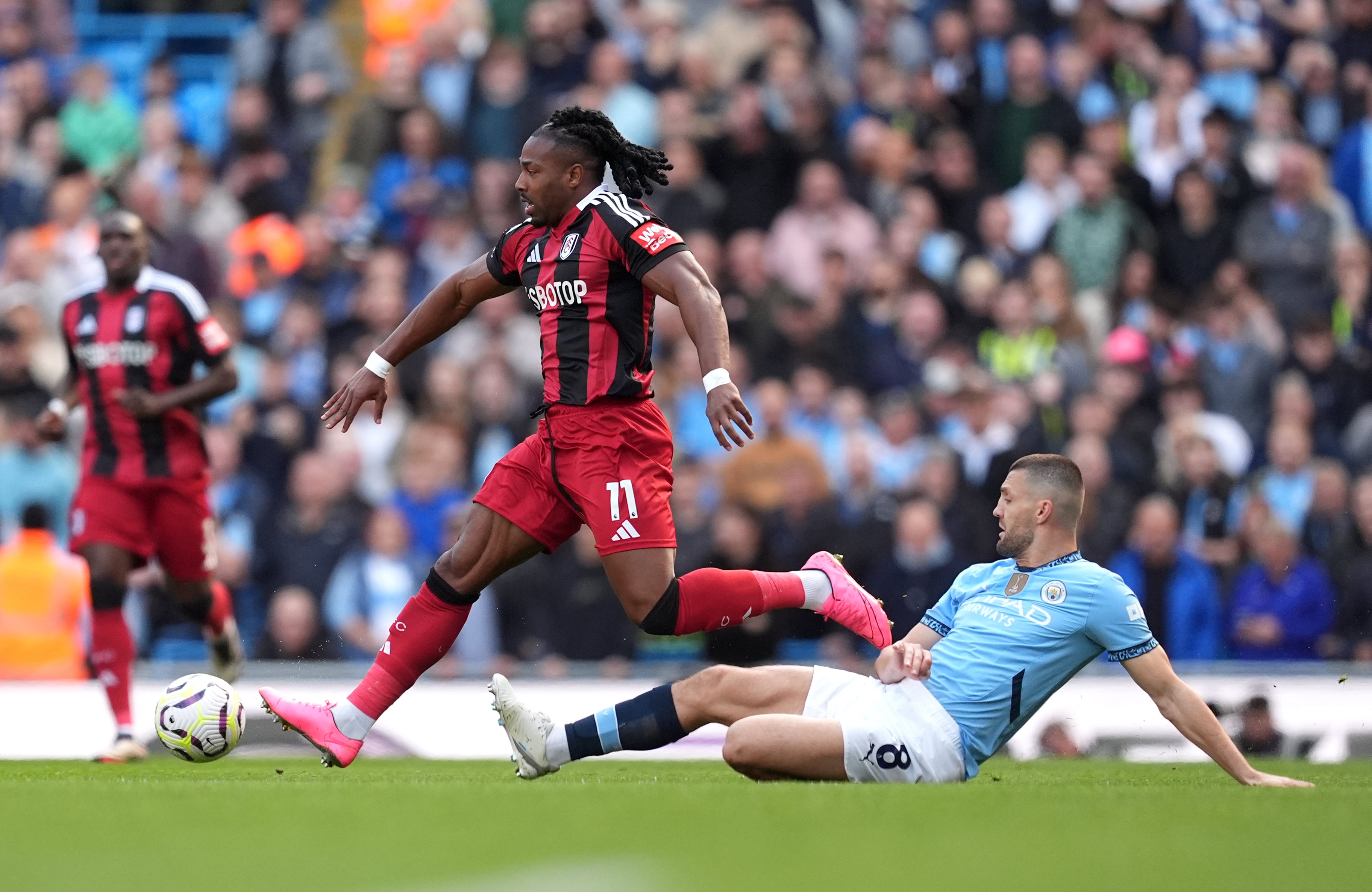
Your support helps us to tell the story
Our mission is to deliver unbiased, fact-based reporting that holds power to account and exposes the truth.
Whether $5 or $50, every contribution counts.
Support us to deliver journalism without an agenda.

Louise Thomas
Editor
Pep Guardiola was praising a passer for his shot-stopping. It is one interpretation, anyway. Ederson can feel like the footballing revolutionary, the playmaker from behind the defence, the 11th outfield player. Sometimes when Manchester City win, he is largely untested at what used to be the goalkeeper’s main job.
Ederson is famously good with his feet, often scarcely required with his hands and, if save percentages are the barometer, rarely among the best in the Premier League. Guardiola is never slow to mention his most significant saves, or to forget his transformative impact. “The Champions League, I remember in certain moments, Eddie saved it,” he said, recalling his late stops in the 2023 final. “The success we had, without him, I cannot visualise.”
He may have had to envisage a City without Ederson, however. Al Nassr came calling in the summer. Ederson had family reasons to seek a move and a manager trying to persuade him to stay. “I didn’t want it,” said Guardiola. The Saudi Pro-League offer huge wages, but rarely massive transfer fees. “The real offer didn’t come,” added Guardiola. Al Nassr did not offer £50m, or anything close. “For the keeper for the team who won four Premier Leagues in a row, they have a value, a price. Otherwise, he cannot leave.”
He did not and Guardiola had a particular reason to be grateful on Saturday. Ederson was outstanding, twice denying Adama Traore when the Fulham winger was through on goal. The irony, perhaps, was they are the sort of saves in which his deputy Stefan Ortega specialises. “Stefan is, for me, one of the best players I've ever seen in one against one,” said Guardiola. So perhaps, had Ederson gone, City would have won against Fulham anyway.
But Ederson’s reward for remaining in Manchester is a greater workload. He enters the international break with a lone Premier League clean sheet. Yet that reflects defensive difficulties rather than goalkeeping shortcomings. City’s expected goals against is 8.93, far higher than Liverpool’s 5.72. It works out at 1.27 per game – Fulham’s 2.76 on Saturday was more than double that – compared to 0.98 last season. In none of Ederson’s seven full seasons have City conceded an average of 1.0 league goals per game or 1.0 xG.
All of which gives Guardiola plenty to ponder upon. “Maybe we create more and concede more,” he said. “I have the international break to reflect.” He accepted there may be systemic issues. “Maybe structurally, yeah,” he added.

Perhaps the problems in front of Ederson are both structural and individual. The goals City have conceded include a long-term issue: City can be caught on the counter-attack, as they were for Sammie Szmodics’ opener for Ipswich, Arsenal’s controversial equaliser or Ruben Dias’ own goal at West Ham. The chances Traore missed stemmed from lightning quick breaks and, while Newcastle levelled against City from the penalty spot, the incident came from a direct ball behind the defence.
The offside trap has malfunctioned at times. But it is telling, too, that some of the key passes have been played from the central area Rodri would otherwise patrol. He might have cut them out; certainly the temptation while the Spaniard is injured and opponents play through City with insufficient resistance is to say he would have stopped everything. “It’s so easy to say this analysis,” said Guardiola. “Because without Rodri we lose this power, because he’s another guy who is so strong in this position.”
City don’t have the same physical strength, presence or defensive instincts in midfield without him. They have had different kinds of issues in the defence. Nathan Ake, their most consistent defender last season, has been limited to two minutes in the Premier League. John Stones has arguably been underused but was culpable for Brentford’s first-minute strike. Kyle Walker has been dismal and, to varying degrees, had a role in the three goals Arsenal and Newcastle scored.

Of the most-used quartet, Dias has been below his best, Manuel Akanji and Josko Gvardiol better. Rico Lewis is a prodigy in possession but was uneasy when isolated against Traore. There was a slackness on Saturday. Andreas Pereira drifted behind Akanji to score the first. Traore was in acres of space when he should have doubled the lead. Guardiola finished with a back five but no one close enough to Rodrigo Muniz when he scored.
“Why don't we give credit to them rather than [find fault] defensively?” asked Guardiola. And if Fulham deserve praise, a hope may be that they and Brentford serve as role models: instead of inferiors being intimidated before kick-off at the Etihad, each has arrived with a strategy to score and departed disappointed they did not take a point.
Perhaps they sensed an uncharacteristic frailty in City. “There are actions we can defend better but step by step we will improve,” said Guardiola. “I have to reflect on the goals, how I see normalisation and transition and set pieces.” Because, fond as he is of Ederson, he prefers it when he does not have to hail his goalkeeper for his shot-stopping.







